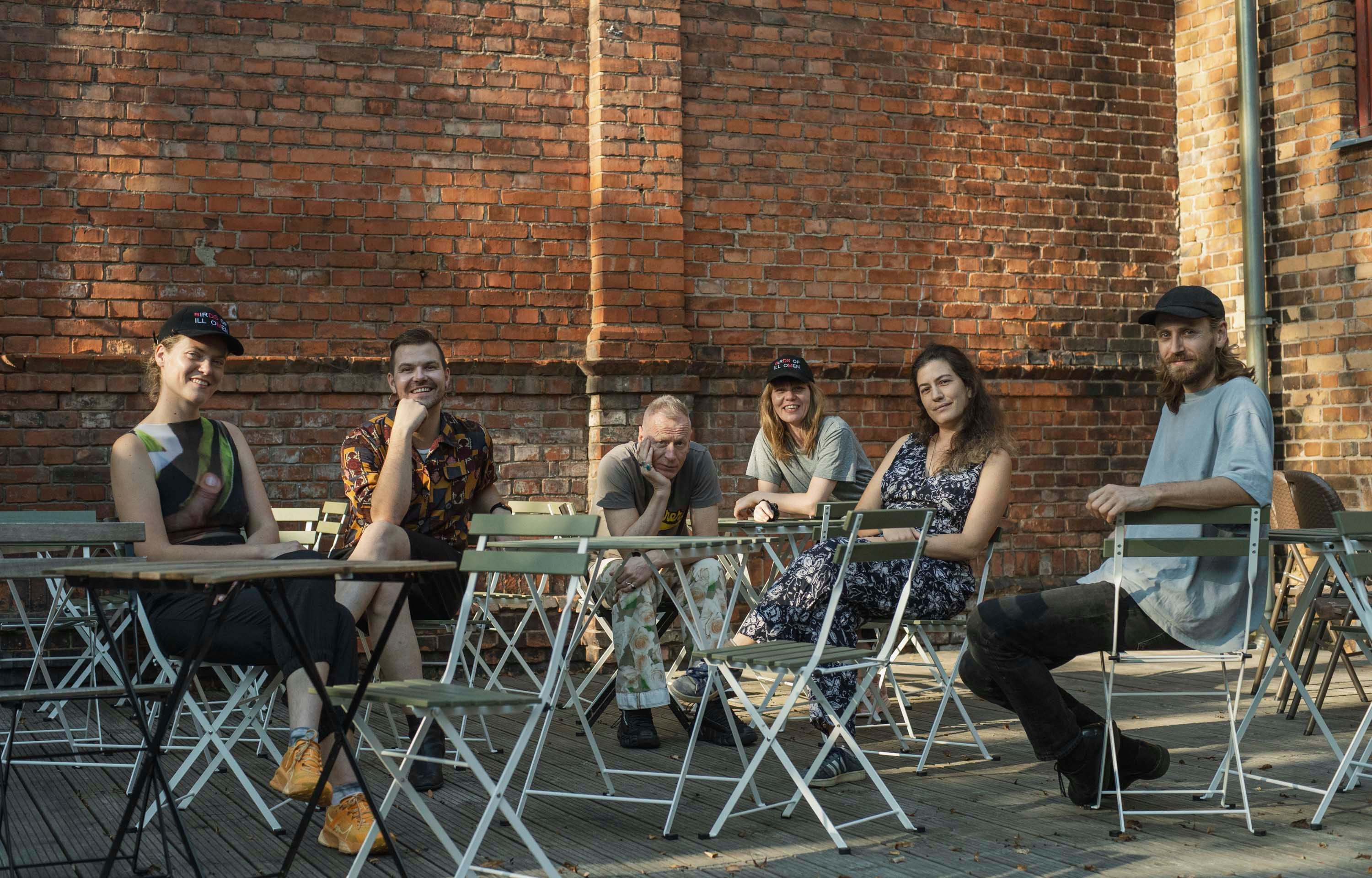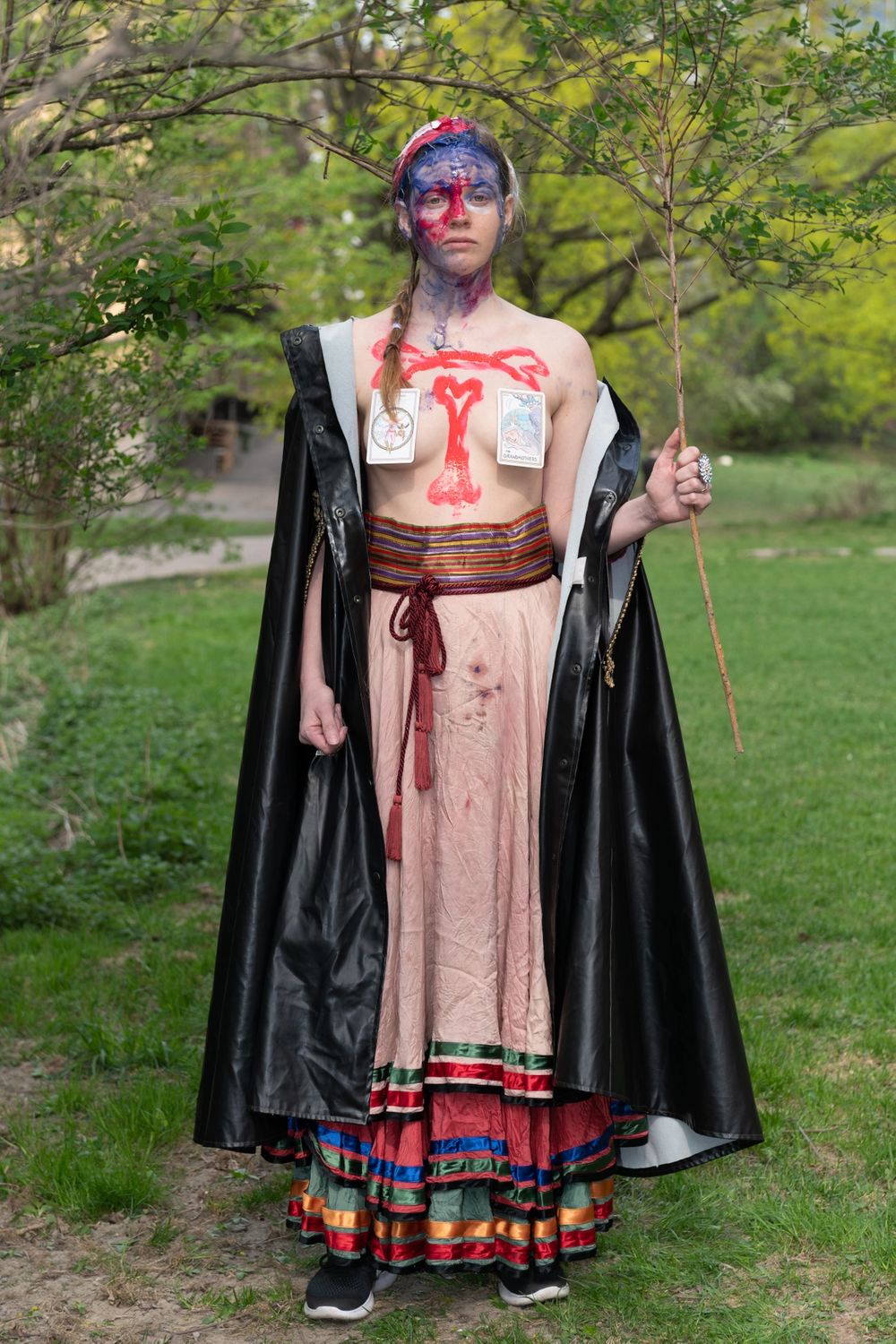“Diwriziennet – Lost Genealogies”: Exploring Queer Identity and Cultural Heritage. An Interview with Corentin JPM Leven

- Photo Henry Griin
Could you start by telling us what “Diwriziennet” means and what inspired this project?
“Diwriziennet” means “uprooted” in Breton language. It's the third performance by CJPM Productions, and it's a rather personal exploration of my heritage and the archival of Queer stories. I wanted to examine my Celtic roots and my journey to escape an imposed social identity to define my own queer identity. As we develop this project, we realize that a big focus of ours lies in the concept of performance in social contexts: Performing culture, performing Queerness.
The performance delves into the lack of Queer stories within your culture and personal life. How did this realization come about?
By examining my history and heritage, I questioned the absence of Queer stories and references within my culture. Even though things are changing, at the time I grew up, these stories were nonexistent and silenced. It is evident that there's a strong need for Queer individuals to gather in communities, to create spaces where they can truly be themselves and inform each other. Growing up a queer kid in this rural part of France was very lonely. Survival to me meant escaping the Breton countryside, its language, and culture, to forge a new social identity. I had to let it all rest to find some sort of peace and fulfillment within myself.
You touch upon the bond between emancipation and legacy. Could you elaborate on that?
There is always something painful in letting go of such an inherent part of your identity, and that is precisely when the legacy comes into play. What was and is my role when the identity I chose to flee is already a minority of its own.Could it be that I am relieving this trauma from a different perspective? The performance confronts my culture by revisiting my upbringing, problematizing my ownership and contribution to Breton culture as a young homosexual. It looks at the cost of separating oneself from their culture, despite lingering emotional ties, and how latent homophobia or mutism creates distance for those who refuse to conform. And yet, in all this effort to systemize this escape, the intense feeling of a Home remains. A genesis from where the individual stems from. It may sound trivial, but in these times where war and politics cause the movement of thousands and thousands of people, we need to remember the meaning of a home, its importance, its weight and necessity, wherever and whoever you are in whichever society.
The performance draws inspiration from Lan Florence Yee's article and Jack Halberstam's theories. How have these influenced your work?
Yee's article, “How (Not) To Preserve Yourself”, and Halberstam's ideas on “new forms of memory” challenged me to rethink archival practices. As I received my double nationality in 2022, I began a genealogical project to trace my life from a queer perspective. I wanted to find evidence of queerness in my family tree and community, but these stories are often lost due to taboo and lack of documentation. And then, I stumbled upon this article and it really moved me and made me question what I was actuallysearching for when looking back. At the time when I discovered this article, I was finally a phase of resilience, acceptance when it comes to my HIV diagnosis I also came at ease with the concept of an Archive of its own. This same archive I have been torturing myself over when considering the amount of death AIDs had and still causes, while me and my privileged life are safely living our life.
This article, together with notions such as spectrality, latency and ephemeral traces have shaped a visual world in which the moment and its witnessing are sufficient as performative archive. The performative appeal of a Queer archive that must be lived and exist a this moment X to become not only a reference point but also an inspiration, a pivot. Many times, I think about this one queer kid that can see a performance and decide to bring this work further with them, like fundamental piece of their embodied sculpture. I have been that kid, it got me here, I guess the archive is expanding daily.
You also address the cultural oppression of the Breton community. How does this intersect with your personal story?
The Breton community has suffered cultural oppression, losing their language and customs. My grandparents were physically punished for speaking Breton, forced to abandon their traditions. On top of political decisions, there was also this idea that to succeed and escape the misery of our rural life we had to learn French to emancipate ourselves and cease to be poor. This thinking has created a gap in our history, and at the same time, tourism expanded, as an exotifying yet saving option to survive and romanticize our existence.. This history highlights how the struggle for cultural survival can marginalize other identities. Ideally this performance would also be a love letter.
Corentin JPM Productions has a focus on queer narratives, particularly around sexual health. How does "Diwriziennet" fit into your previous works?
Our previous performances, +- and Birds of Ill Omen, explored queer narratives through the lens of grief and medical definitions of the queer body. Diwriziennet continues this exploration by delving into the cultural and historical context of queer identity. It is very difficult for me and through the prism of my work, to differentiate themes and not see the need for us to use our platform to inform around HIV. Not only because it is a dangerous virus but also because life has changed and the stigma around it is counterproductive if we want to keep on saving lives. We must take these health questions more seriously in our daily conversation, and ironically I believe it is by trivializing it amongst friends and people in general. To finish this interview, bring a friend and get tested! Make it a date and indulge in your free sexual life.























